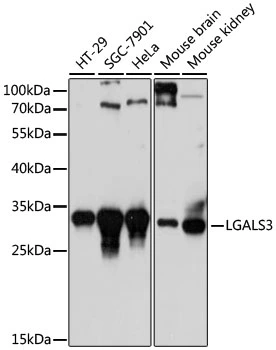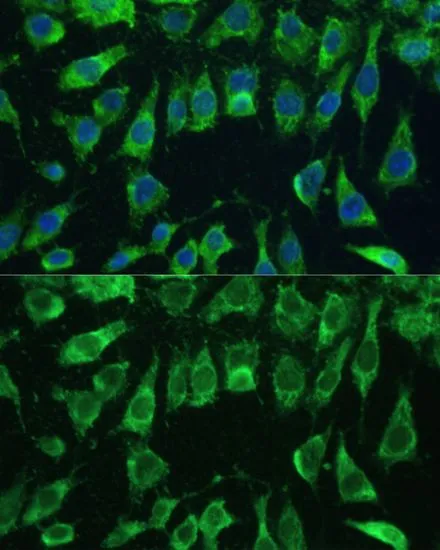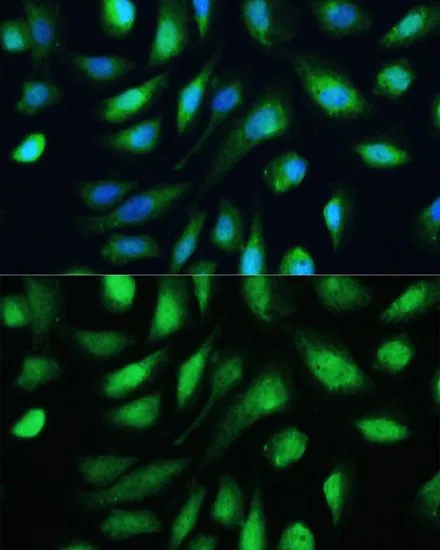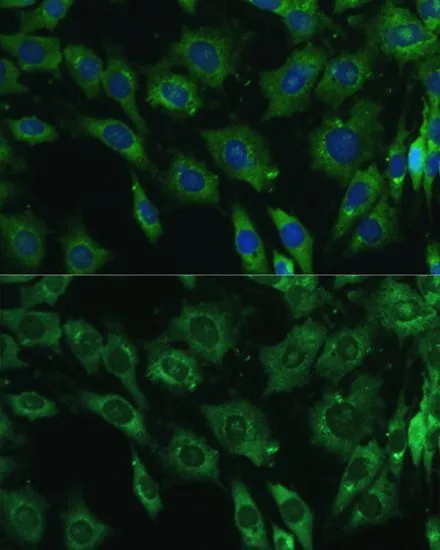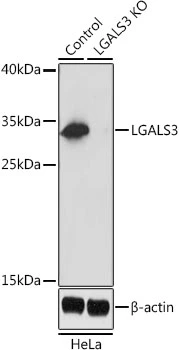
WB analysis of normal (control) and knockout (KO) HeLa cell lysate using GTX35218 Galectin 3 antibody. Dilution : 1:1000 Loading : 25microg per lane
Galectin 3 antibody
GTX35218
ApplicationsImmunoFluorescence, Western Blot, ImmunoCytoChemistry
Product group Antibodies
ReactivityHuman, Mouse, Rat
TargetLGALS3
Overview
- SupplierGeneTex
- Product NameGalectin 3 antibody - KO/KD Validated
- Delivery Days Customer9
- Application Supplier NoteWB: 1:500 - 1:2000. ICC/IF: 1:50 - 1:200. *Optimal dilutions/concentrations should be determined by the researcher.Not tested in other applications.
- ApplicationsImmunoFluorescence, Western Blot, ImmunoCytoChemistry
- CertificationResearch Use Only
- ClonalityPolyclonal
- ConjugateUnconjugated
- Gene ID3958
- Target nameLGALS3
- Target descriptiongalectin 3
- Target synonyms35 kDa lectin; advanced glycation end-product receptor 3; carbohydrate-binding protein 35; CBP35; epididymis secretory sperm binding protein; GAL3; galactose-specific lectin 3; GALBP; galectin-3; GALIG; IgE-binding protein; L31; laminin-binding protein; lectin L-29; lectin, galactoside-binding, soluble, 3; LGALS2; MAC2; MAC-2 antigen
- HostRabbit
- IsotypeIgG
- Protein IDP17931
- Protein NameGalectin-3
- Scientific DescriptionThis gene encodes a member of the galectin family of carbohydrate binding proteins. Members of this protein family have an affinity for beta-galactosides. The encoded protein is characterized by an N-terminal proline-rich tandem repeat domain and a single C-terminal carbohydrate recognition domain. This protein can self-associate through the N-terminal domain allowing it to bind to multivalent saccharide ligands. This protein localizes to the extracellular matrix, the cytoplasm and the nucleus. This protein plays a role in numerous cellular functions including apoptosis, innate immunity, cell adhesion and T-cell regulation. The protein exhibits antimicrobial activity against bacteria and fungi. Alternate splicing results in multiple transcript variants.[provided by RefSeq, Oct 2014]
- ReactivityHuman, Mouse, Rat
- Storage Instruction-20°C or -80°C,2°C to 8°C
- UNSPSC12352203

